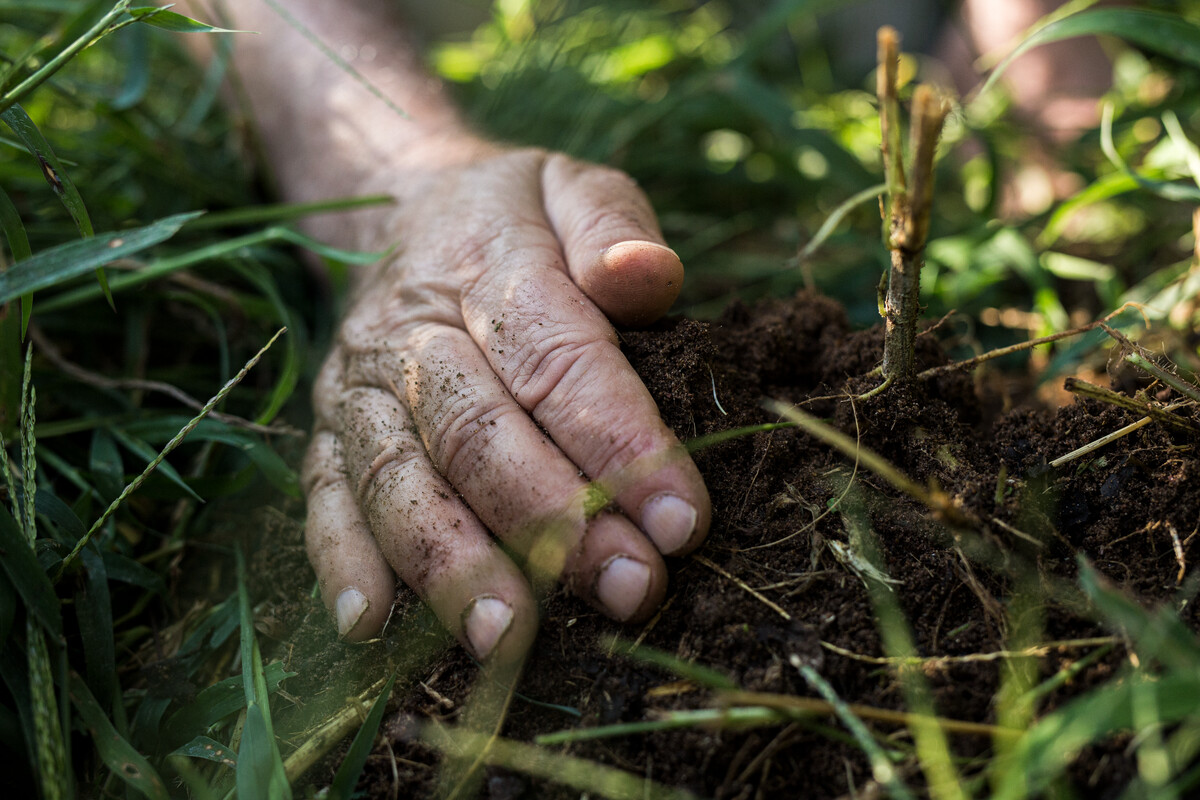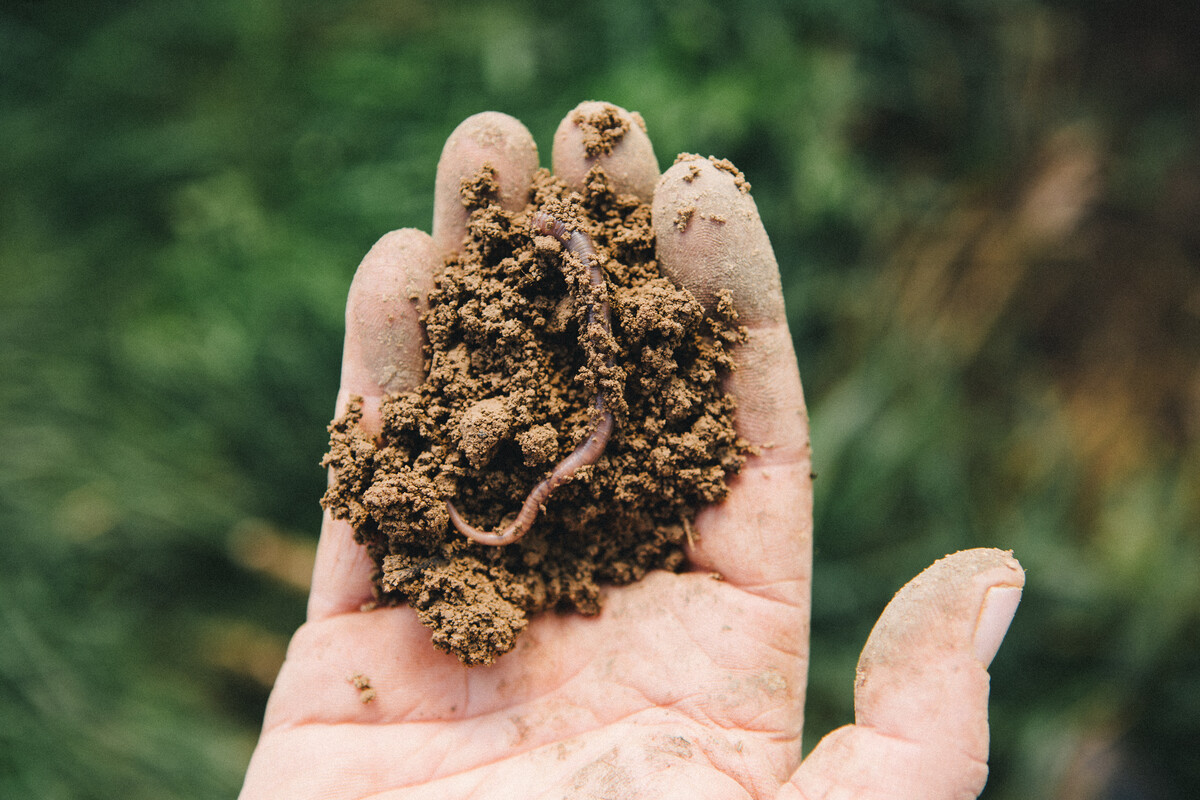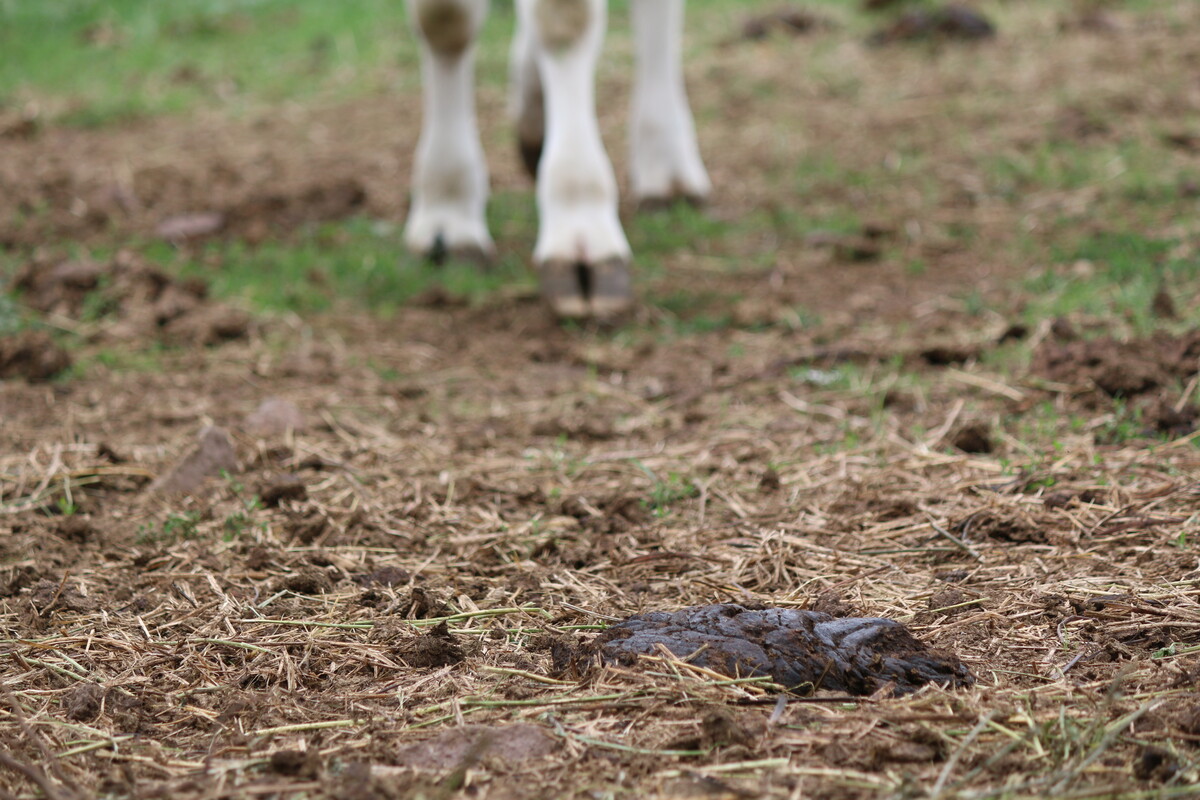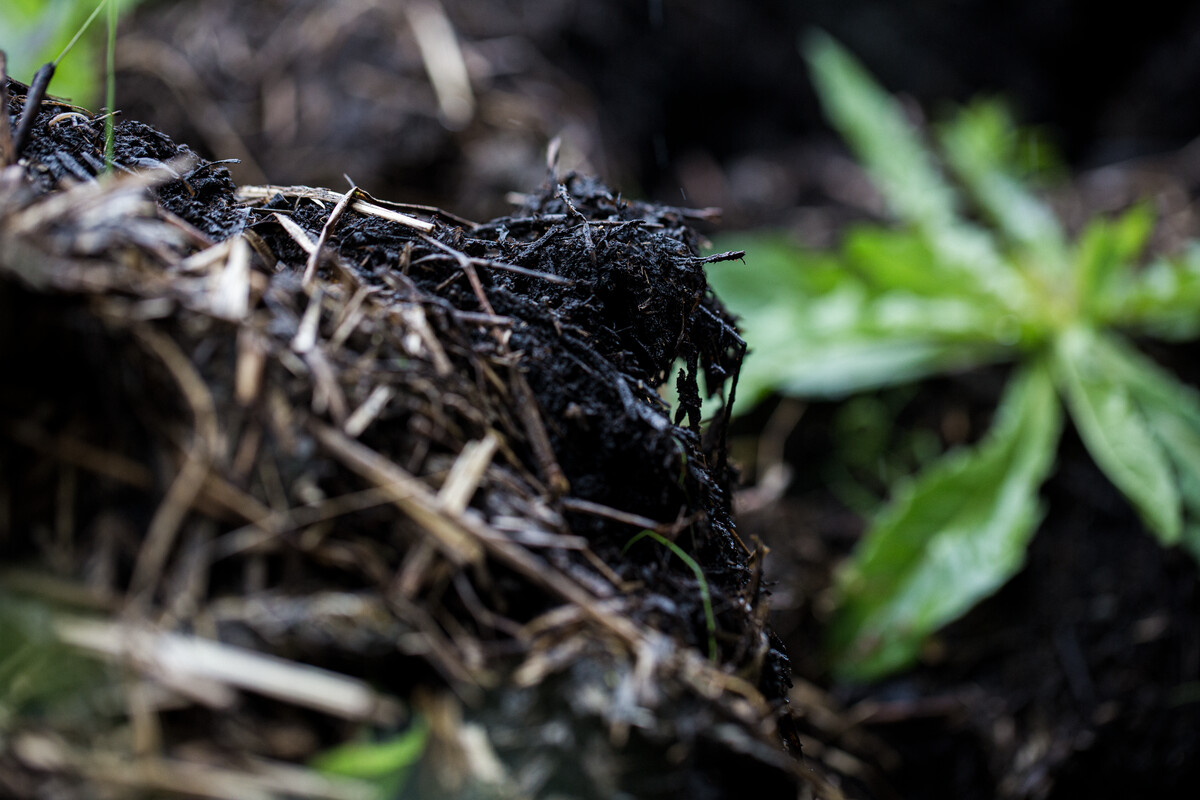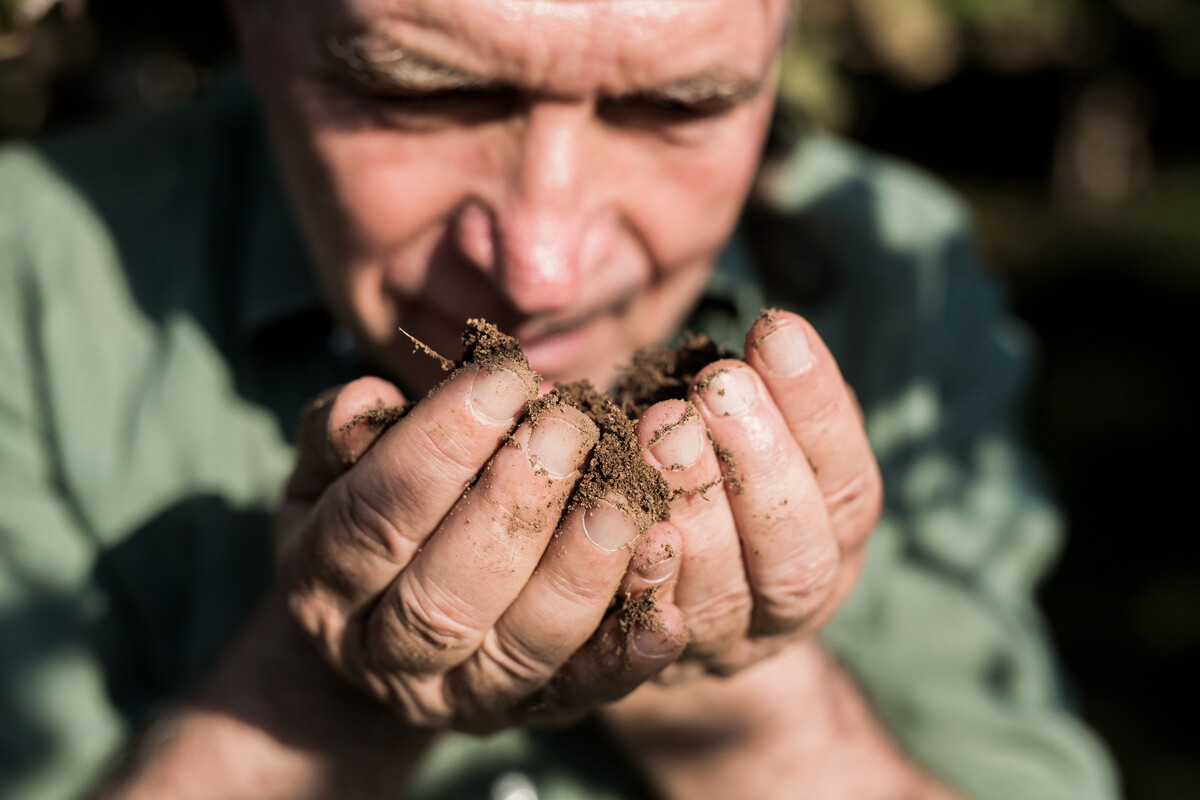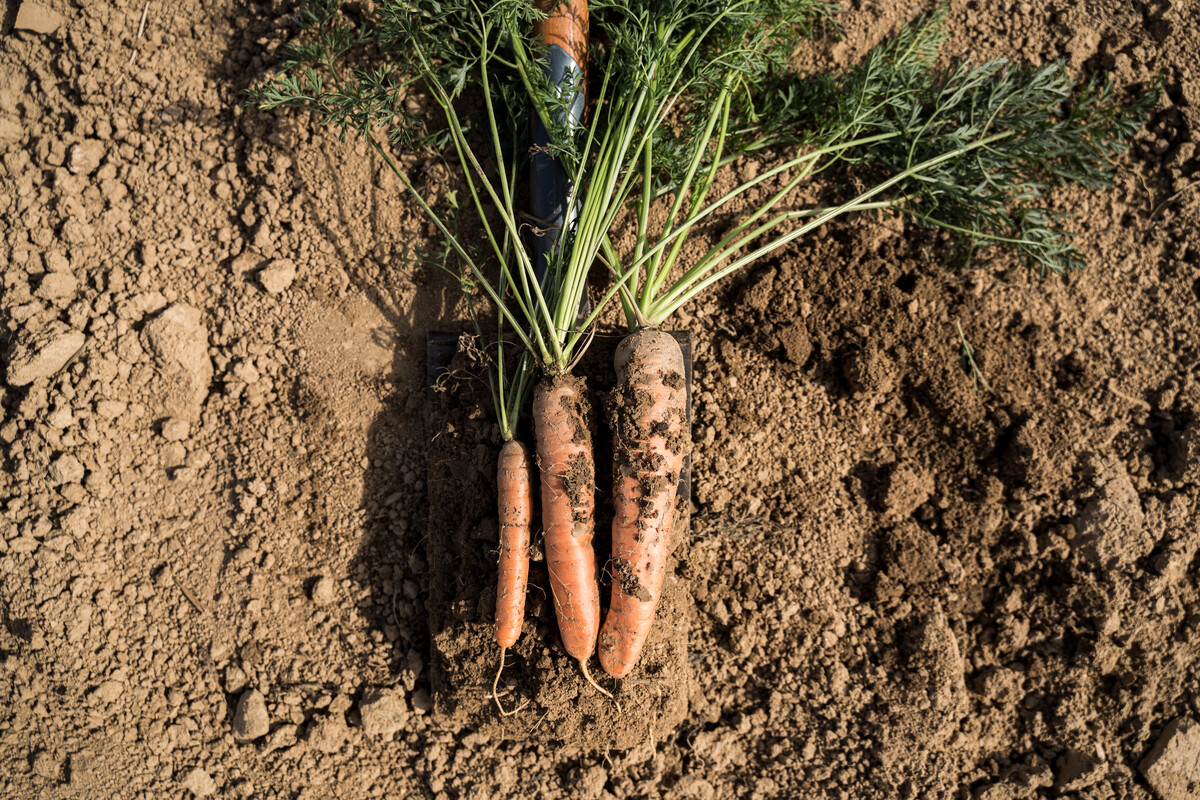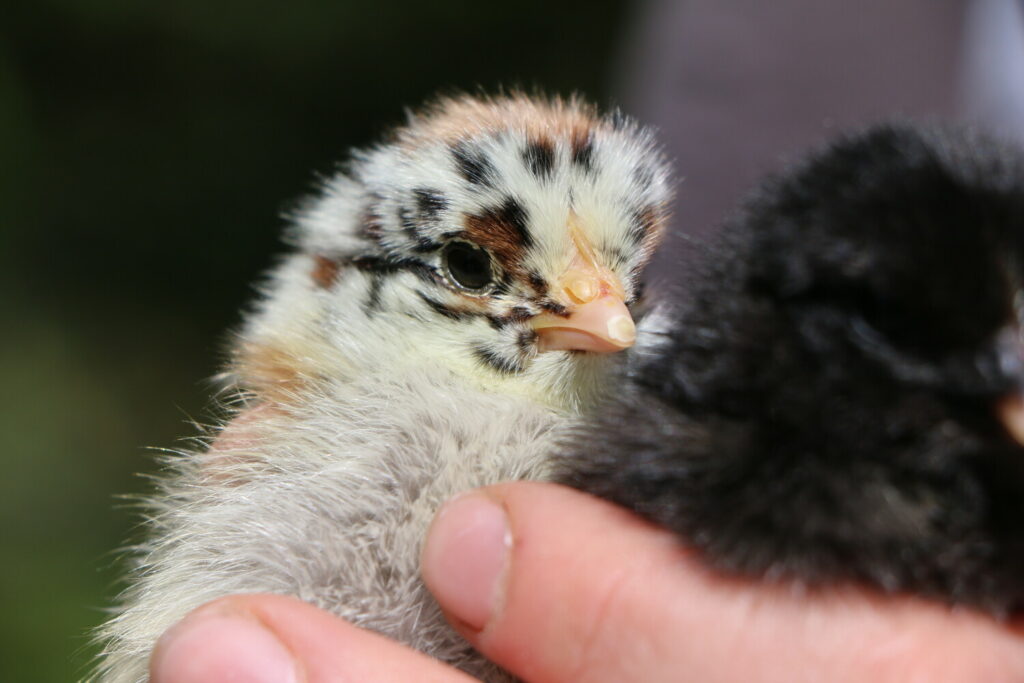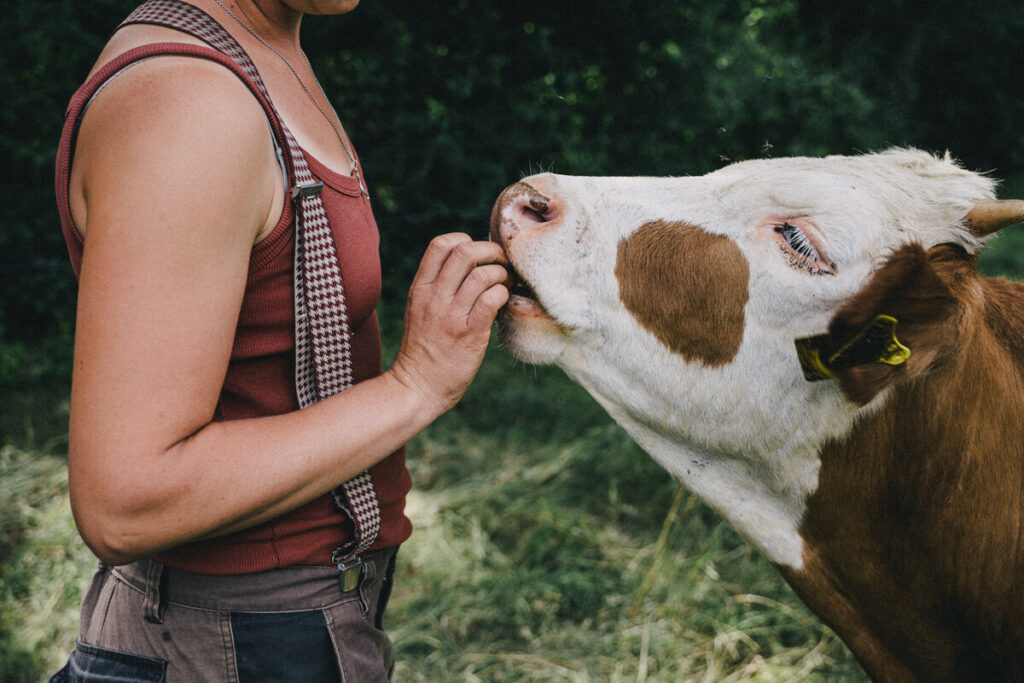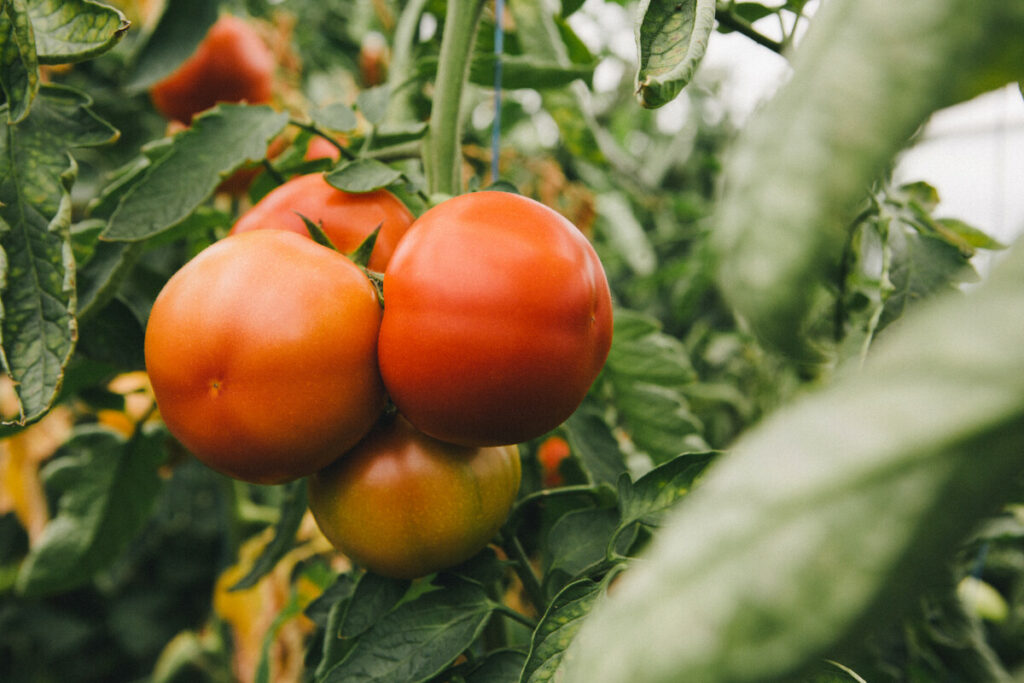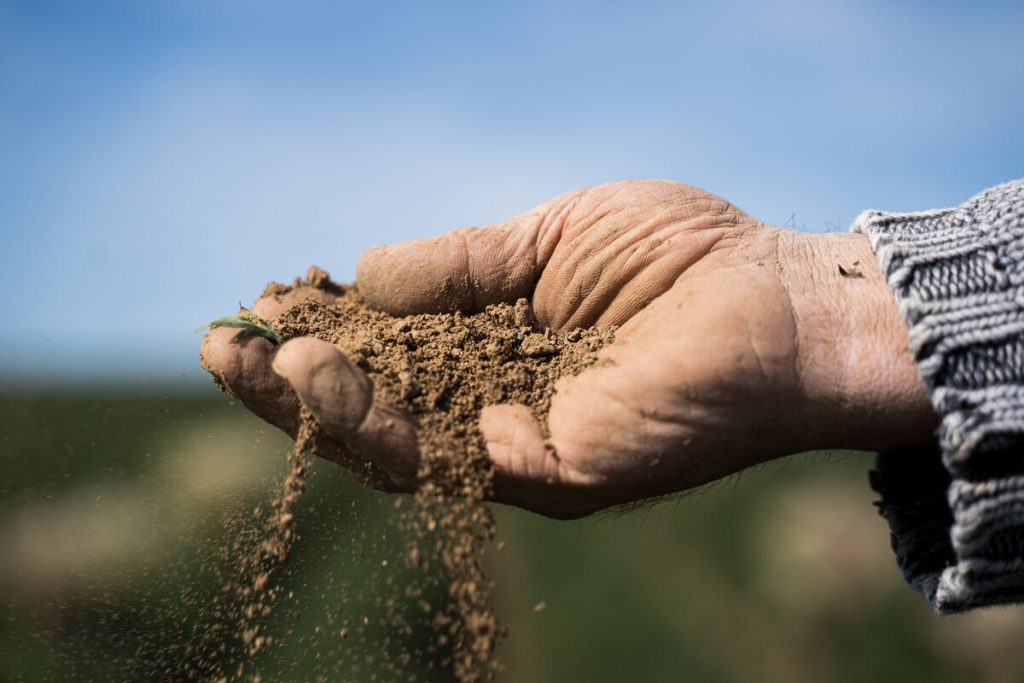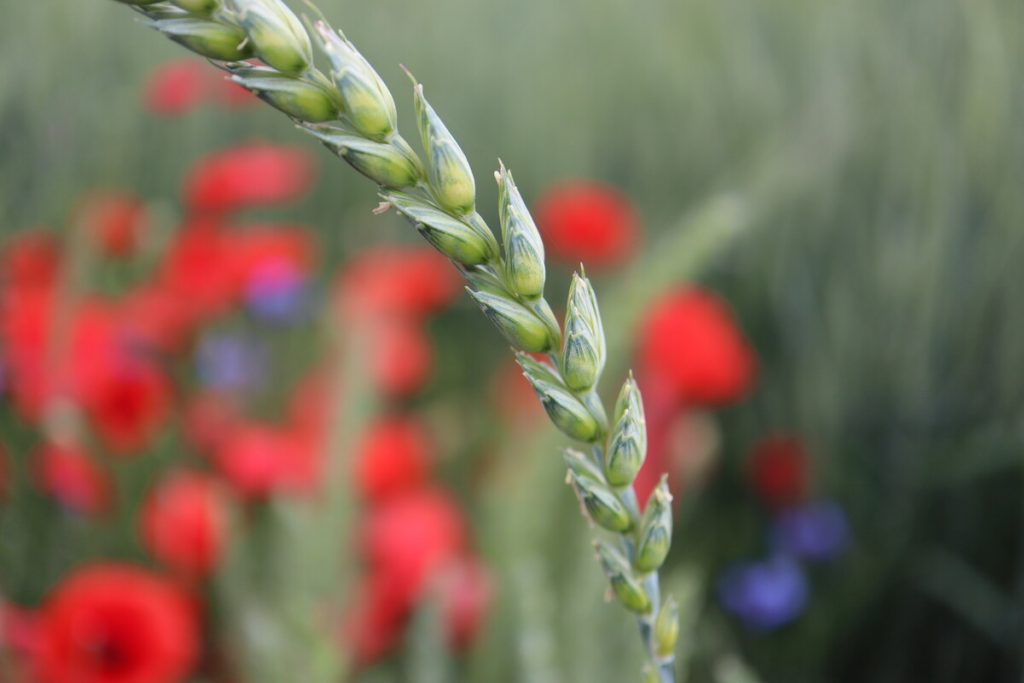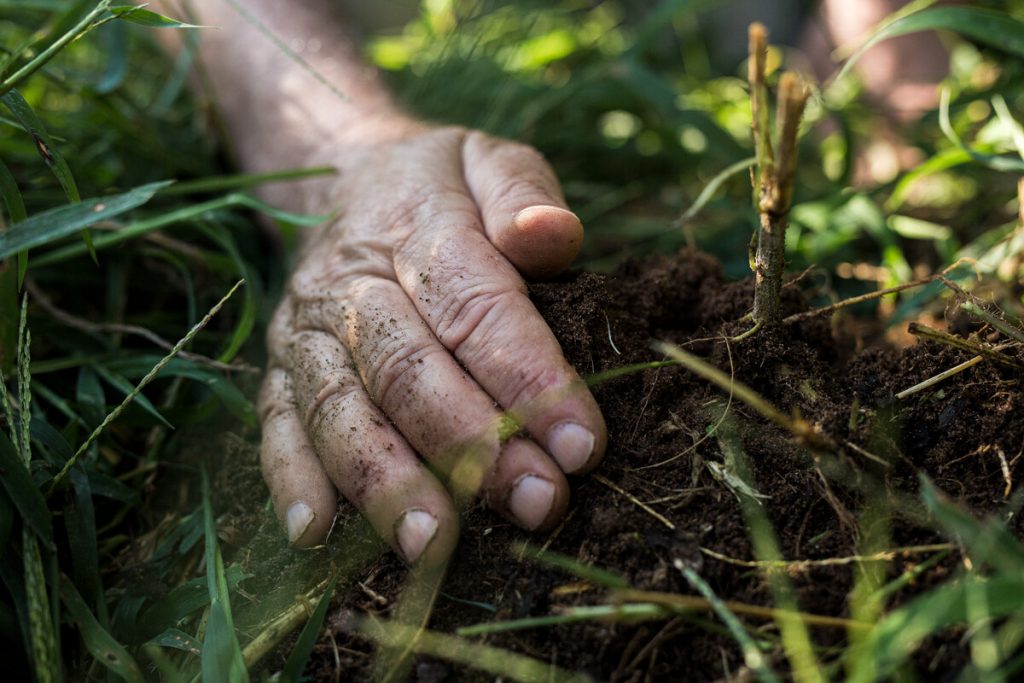A fundamental value in biodynamic farming, is our soil being regenerated, is the foundation for the best outcome for our food, our health and that of the planet earth.
Our view is, that plants ripen best into valuable food, in living soil where the humus layer is rich and nourishing. This provides a source of nutrients for plants, regulates the air and heat balance of the soil and also binds CO2. Therefore playing a very important role for the health of the climate as well.
Soil fertility is key
The importance of soil fertility
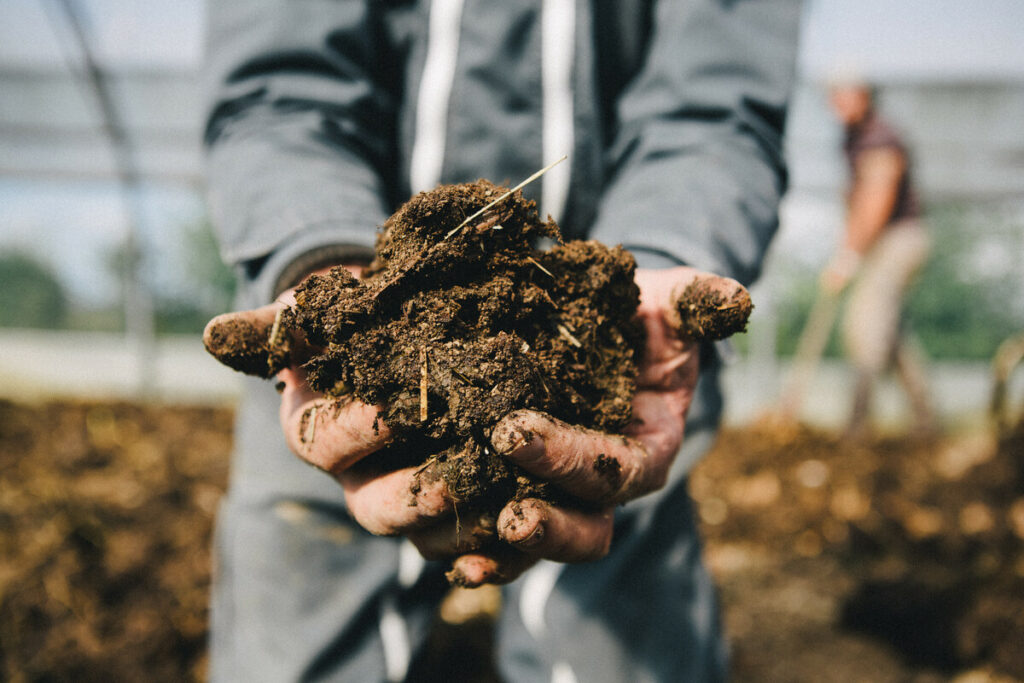
Appreciating our soil
The use of biodynamic preparations, composting and diverse crop rotations ensure that more is given back to the soil than is taken from it during cultivation. By maintaining, and importantly, increasing soil fertility we truly start to impact the climate crisis and therefore the future of our food, plants and animals in the long run. We need to appreciate what a finite resource soil is and how we as humans, have the biggest impact on it and therefore the biggest responsibility.
Biodynamic methods for soil fertility
The Demeter community has developed an alternative to the depletion of resources via conventional agriculture, through biodynamic practices and approaches and is committed to creative and sustainable solutions.
How ‘conventional’ agriculture treat the soil
The use of heavy machinery, lack of crop rotation, synthetic fertilisers and sprays, erosion, cultivation and speculation have massive consequences by eroding soil, depleting fertility and releasing carbon into the atmosphere. We all trample on soil literally and figuratively – with far-reaching, negative consequences. It requires swathes of land being deforested and thereby causing erosion and humus depletion. There has been an endless greed for soil as an object of extraction.
We nurture and care for the soil. With cow manure, not with chemicals.
At Demeter we believe in restoring and regenerating soil. We understand and value the “living being” that is soil and our farmers and growers experience it every day as part of their process in producing nourishing food.
We care for soil: with manure – not with synthetic chemicals. This promotes the build up of humus, the nutrient rich layer of the soil, which is essential for the healthy growth of plants and for binding in CO2 (sequestering carbon). Our unique use of biodynamic preparations also supports the metabolic processes in the soil – which encourages strong and healthy plants. Read more about how Demeter farmers work with biodynamic preparations to strengthen and nurture the soil.
Crop rotation for enlivening the soil
Crop rotation means that diverse crops are planted on a field in regular rotation. While some take nutrients out of the soil, others put them back into the soil. This allows us to do arable farming without synthetic chemical fertilisers. In addition, the soil remains healthy and humus, which is important for the climate, is built up. Clover grass, for example, binds nitrogen from the air in the soil. Then fruit can be cultivated and benefits from this.
Fertile, healthy and living soil is central to facing the social and ecological challenges of today: climate change, desertification, and environmental degradation. Caring for the soil also contributes to the supply of healthy food, clean water and protects biodiversity. That is why a future-oriented farming strategy must have the protection and regeneration of healthy soil at its centre.
Alysoun Barret Bolger, Executive board member at Biodynamic Federation Demeter International
Soil’s connection to the climate
Demeter and organic farmers have long been showing, in an economically viable way, how soil can be cultivated in a way that it remains fertile and alive, while still producing healthy yields. Using varied crop rotations, no pesticides and water-conserving fertilisation, this sustainable management of the soil protects the climate, the environment, biodiversity and water, while producing healthy food.
Soil, the CO2 “eater” – Soil protection is climate protection
Above and beyond the fact that humus (healthy soil) is the basis for sustainable food production, there is also a complex relationship between soil and the climate.
On the one hand, climate change affects the soil – in the way of heavy rainfall or drought. This is where humus contributes to the stability of the soil, so that less topsoil is washed away during heavy rains and more water can be stored for dry periods. It also acts as a kind of air conditioner, by soil storing water for plants they regulate evaporation, thereby controlling the local microclimate. The most noticeable example being where impacted or ‘sealed’ soil, in cities, means a noticeably hotter temperature in summer
On the other hand, humus actively protects our climate. Humus rich soil binds a lot of organic material and acts as a CO2 reservoir. By protecting the soil, we directly protect the climate. After the oceans, soil is the second largest CO2 reservoir – or CO2 sink – on Earth! The world’s soils contain as much carbon as plants and the atmosphere combined, so the more carbon we can store in soil the better for the climate and all life on earth.
Soils, that are healthy and contain humus, are the largest terrestrial store of carbon, but at the same time one of the most important natural sources of CO2 in the atmosphere. This makes soil organic matter important not only for soil fertility, but also as a transporter of greenhouse gases for climate change.
Water supply is also affected by the quality of soil. When there is a targeted build-up of organic humus it contributes to soil stability, so there is less topsoil being washed away during heavy rainfall and more water can be stored during dry periods.
Water quality and soil fertility are closely linked
Biodynamic agriculture sees farmers using methods that conserve natural resources, including groundwater. Biodynamically cultivated fields are not polluted with synthetic chemical pesticides and Demeter farmers keep fewer animals on a larger area of land than conventional farming does. This leads to less nitrate pollution of the soil and water. This means the available soil is able to absorb animal manure well and in turn create valuable humus. The building up of this organic humus is key to stabilising the soil and in turn helps topsoil not wash away during heavy rainfall. It also means more water is stored in the soil for dry periods, allowing plants and crops to be more resilient in the face of extreme weather conditions.
Soil also filters rainwater and the humus in the soil binds nutrients and prevents them from leaching into the groundwater.
